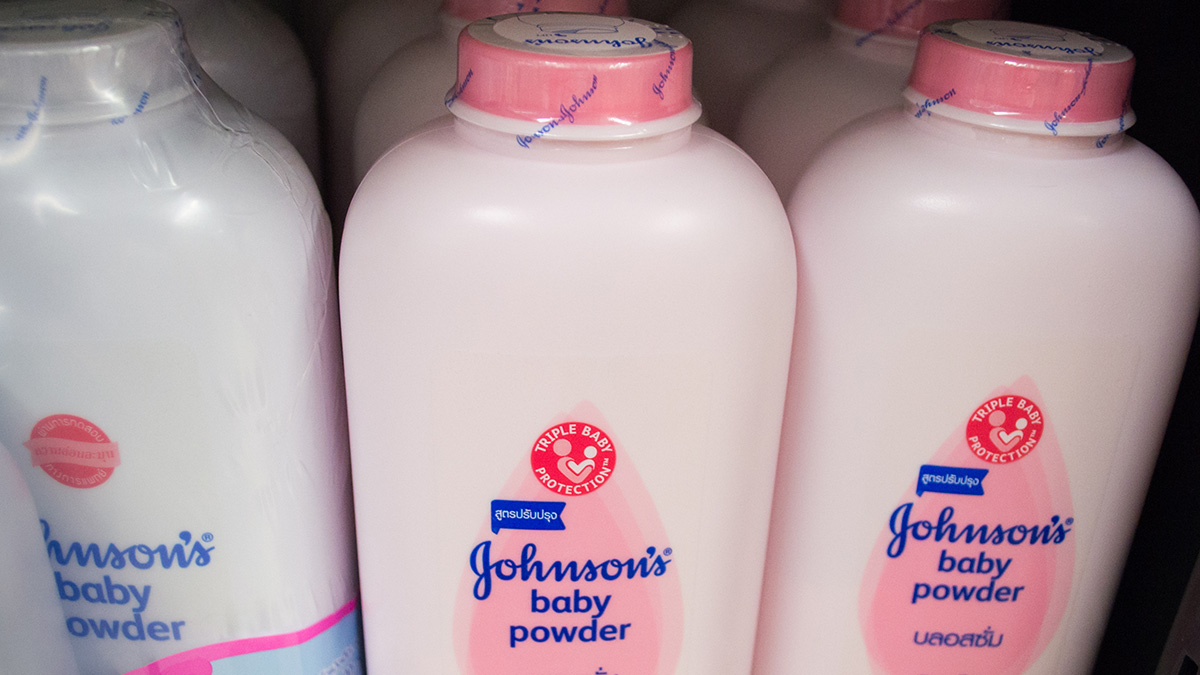J&J says it will stop selling all talc products next year

Johnson & Johnson has said it will stop selling talc-based baby powder products globally next year, two years after halting sales in the US and Canada.
The company said the decision to replace its talc Baby Powder with a cornstarch-based version has been taken as "part of a worldwide portfolio assessment," and reiterated that its position on the safety of talc – the subject of ongoing and expensive litigation – remains unchanged.
"We stand firmly behind the decades of independent scientific analysis by medical experts around the world that confirms talc-based Johnson's Baby Powder is safe, does not contain asbestos, and does not cause cancer," it said in a statement.
J&J said in its latest quarterly update that litigation expenses, primarily related to talc, were around $100 million in the first half of the year, although that relatively low figure came amid a stay on litigation (see later).
It is facing more than 40,000 legal cases relating to talc body powder products, with the numbers both in and outside the US continuing to increase.
The company has had a mixed record in defending itself in these lawsuits, winning some and losing others, In one notable case, the Missouri Court of Appeals awarded plaintiffs $2.1 billion in damages, albeit reduced from the $4.7 billion imposed by a lower court.
Efforts to take the complaint to the Missouri Supreme Court were blocked, and in June 2021 J&J paid the damages, which with interest amounted to $2.5 billion.
In an attempt to put the issue behind it, J&J controversially implemented a corporate restructuring last year to transfer all of its talc-related liabilities into a new company – LTL Management LLC – which filed for bankruptcy protection shortly afterwards in a move known as a 'Texas Two-Step'.
That resulted in a judge pausing all pending talc litigation while the bankruptcy proceedings were ongoing, but earlier this year plaintiffs won the right to appeal the earlier ruling that backed J&J's tight to use bankruptcy to speed up a settlement, sending the case up to the federal appeals court.












